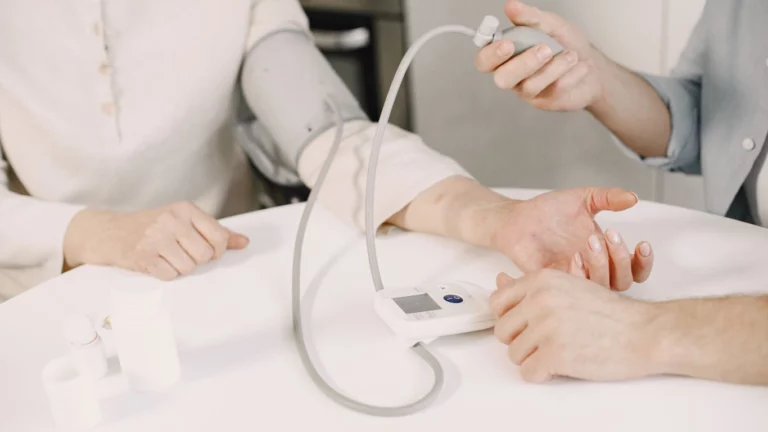Why Potassium is Key for Healthy Blood Pressure Levels
Ever heard that potassium is the MVP for heart health? Well, it’s true. This powerhouse mineral plays a massive role in keeping your blood pressure in check. Let’s dive into why potassium is so important and how it works its magic!
We all know blood pressure is a big deal. High blood pressure (hypertension) can lead to serious health issues like heart attacks and strokes. And while everyone talks about cutting down on salt, there’s another player you don’t want to overlook: potassium.
How Does Potassium Help with Blood Pressure?
Potassium is like your blood pressure’s best friend. Here’s how it works:
1. It Balances Out Sodium
Too much sodium is bad news for your blood pressure. It causes your body to hold onto water, which increases blood volume and, in turn, raises blood pressure. Potassium steps in and says, “Nope!” It helps your body get rid of excess sodium through urine, which lightens the load on your blood vessels.
2. It Relaxes Blood Vessel Walls
Potassium has this chill effect on your blood vessels. It helps them relax, which means less resistance for your blood to flow through. This lowers your blood pressure naturally and keeps your heart from working overtime.
3. It Reduces the Risk of Stroke
Studies show that getting enough potassium can significantly lower your risk of stroke. Since high blood pressure is a major cause of strokes, keeping it in check with potassium is a no-brainer.
Foods Rich in Potassium
Want to get more potassium in your diet? No problem! Here’s a list of potassium-packed foods you can easily incorporate into your meals:
Fruits
– Bananas (the classic choice) – Oranges and orange juice – Avocados (bonus: they’re also great for healthy fats)
Vegetables
– Sweet potatoes – Spinach – Broccoli
Other Sources
– Beans (like kidney and lima beans) – Nuts and seeds – Dairy products (think yogurt and milk) These foods aren’t just good for potassium—they’re loaded with other nutrients your body will thank you for.
How Much Potassium Do You Need?
The recommended daily intake of potassium for most adults is around 2,600-3,400 mg. However, your needs might vary depending on your health, age, and activity level.
Signs You Might Need More Potassium
– Muscle cramps – Fatigue – Irregular heartbeat If any of these sound familiar, it’s worth chatting with your doctor to see if a potassium boost could help.
Can You Get Too Much Potassium?
Yes, but it’s rare if you’re getting potassium from food. Your kidneys do a great job of flushing out any extra. The problem usually arises with supplements or certain medical conditions, so don’t overdo it without medical advice.
Potassium vs. Sodium: The Perfect Balance
The key to healthy blood pressure isn’t just about loading up on potassium—it’s about balancing it with sodium. Aim for a diet with low sodium and high potassium. Think more fresh fruits and veggies, and less processed junk.
Quick Tips to Reduce Sodium and Boost Potassium
1. Swap salty snacks for a piece of fruit. 2. Cook at home more often so you can control the salt. 3. Add potassium-rich ingredients to your meals, like spinach in your pasta or avocado on your toast.
Conclusion
Potassium is the unsung hero in the fight against high blood pressure. It balances out sodium, keeps your blood vessels relaxed, and even lowers your stroke risk. By adding potassium-rich foods to your diet, you’re not just helping your blood pressure—you’re giving your entire body some love.
Appendices
FAQs
- How does potassium lower blood pressure? Potassium helps the body remove excess sodium and relaxes blood vessel walls, reducing blood pressure.
- What are the best foods for potassium? Bananas, oranges, sweet potatoes, spinach, and beans are excellent sources.
- Can I take potassium supplements instead of eating potassium-rich foods? It’s better to get potassium from food, but supplements can help if recommended by your doctor.
- How much potassium should I eat daily? Most adults need 2,600-3,400 mg of potassium per day.
- Can too much potassium be harmful? Yes, but it’s rare from food sources. Always consult a doctor if considering supplements.
References
- National Heart, Lung, and Blood Institute. (2023). “Potassium and Heart Health.”
- American Heart Association. (2024). “Managing Sodium and Potassium for Better Health.”
- World Health Organization. (2022). “Global Sodium and Potassium Recommendations.”
Disclaimer: This article is for informational purposes only and does not substitute professional medical advice. Always consult with your healthcare provider for personalized recommendations.

Dr. Gwenna Aazee is a board-certified Internal Medicine Physician with a special focus on hypertension management, chronic disease prevention, and patient education. With years of experience in both clinical practice and medical writing, she’s passionate about turning evidence-based medicine into accessible, actionable advice. Through her work at Healthusias.com, Dr. Aazee empowers readers to take charge of their health with confidence and clarity. Off the clock, she enjoys deep dives into nutrition research, long walks with her rescue pup, and simplifying medical jargon one article at a time.







